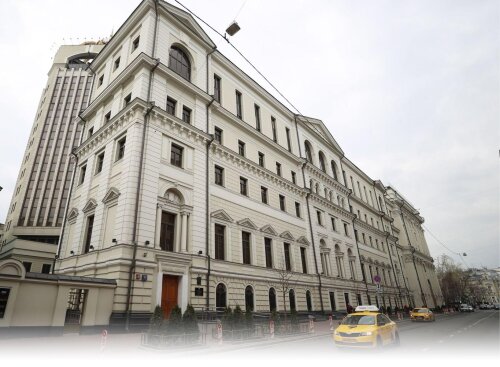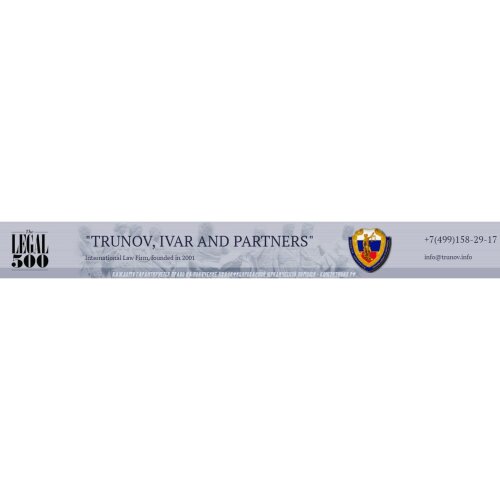Best Native People Lawyers in Russia
Share your needs with us, get contacted by law firms.
Free. Takes 2 min.
Or refine your search by selecting a city:
List of the best lawyers in Russia

About Native People Law in Russia
The term "Native People" in Russia refers to ethnic groups that were present in the regions of the Russian Federation before it became a unified state. These groups have a profound cultural heritage and distinct languages and traditions. Major native peoples in Russia include the Nenets, Saami, Chukchi, and others, primarily residing in the Siberian and Far Eastern regions. Legal frameworks in Russia aim to protect the rights of these people, emphasizing cultural preservation, land rights, and self-governance within federal laws.
Why You May Need a Lawyer
Individuals of native descent or communities may find themselves in need of legal assistance for numerous reasons. Common situations include disputes over land rights, which are crucial for the traditional lifestyle involving reindeer herding or fishing. Legal representation may also be essential when dealing with governmental bodies for cultural preservation grants or when appealing decisions that impact traditional territories. Additionally, legal help might be needed in cases concerning cultural and educational rights under Russian laws and international treaties.
Local Laws Overview
Russia mandates several key laws pertinent to its Native People. The Constitution recognizes the rights of native populations, including the protection of habitats and traditional ways of living. Federal laws ensure the right to use natural resources and provide for the creation of territories of traditional nature use (territorii traditsionnogo prirodopol’zovaniya), areas where traditional economic activities can be carried out. Despite these protections, enforcement and awareness remain significant issues, making it imperative for native peoples to understand their rights fully.
Frequently Asked Questions
1. What constitutes the rights of Native People in Russia?
Native People in Russia have specific rights related to cultural preservation, land use, and self-determination. These rights are protected under the Russian Constitution and various federal laws.
2. How does one go about registering traditional territories?
Registration of traditional territories involves presenting documentation of historical land use to local authorities. Legal advice might be required to navigate this process.
3. Are there any special educational rights for Native People?
Yes, there are educational programs designed to protect native languages and cultures, often involving legal support to ensure implementation.
4. What are some challenges faced by Native People in Russia?
Challenges include land rights conflicts, environmental issues impacting hunting and traditional lifestyles, and limited political representation.
5. Can Native People be involved in natural resource management?
Yes, they have rights to natural resource use within their traditional territories, although actual involvement can depend on local governance.
6. How does one access governmental support for cultural projects?
Accessing support involves applying to local and federal programs, often requiring significant documentation and adherence to specific criteria.
7. Is there legal recourse if Native People's rights are violated?
Legal recourse is available, though it often requires considerable legal knowledge and advocacy, highlighting the need for specialized legal assistance.
8. What role do international treaties play?
International treaties can enhance protections but work through local legal frameworks; understanding this dynamic is crucial for Native People’s legal strategies.
9. How is traditional knowledge protected?
Traditional knowledge protection is mainly cultural, yet legal frameworks can support these within educational and cultural heritage laws.
10. How are issues of identity and self-governance legally addressed?
Self-governance is recognized through laws supporting the establishment of local governance that preserves cultural and historical contexts.
Additional Resources
For those seeking further information or support, consider reaching out to the Association of Indigenous Peoples of the North, Siberia and the Far East (RAIPON), the Russian Ombudsman for Human Rights, and the Ministry of Regional Development. Additionally, various NGOs focus on indigenous rights, providing both legal assistance and advocacy.
Next Steps
If you find yourself in need of legal assistance, consider reaching out to a lawyer specializing in indigenous rights. Begin by documenting all relevant issues and any interactions with authorities regarding your case. Contact local legal aid organizations that may offer pro bono services or have experience with Native People's rights in Russia. It is crucial to engage with community representatives who might offer practical advice and steer you toward additional resources or legal experts with relevant experience.
Lawzana helps you find the best lawyers and law firms in Russia through a curated and pre-screened list of qualified legal professionals. Our platform offers rankings and detailed profiles of attorneys and law firms, allowing you to compare based on practice areas, including Native People, experience, and client feedback.
Each profile includes a description of the firm's areas of practice, client reviews, team members and partners, year of establishment, spoken languages, office locations, contact information, social media presence, and any published articles or resources. Most firms on our platform speak English and are experienced in both local and international legal matters.
Get a quote from top-rated law firms in Russia — quickly, securely, and without unnecessary hassle.
Disclaimer:
The information provided on this page is for general informational purposes only and does not constitute legal advice. While we strive to ensure the accuracy and relevance of the content, legal information may change over time, and interpretations of the law can vary. You should always consult with a qualified legal professional for advice specific to your situation.
We disclaim all liability for actions taken or not taken based on the content of this page. If you believe any information is incorrect or outdated, please contact us, and we will review and update it where appropriate.
Browse native people law firms by city in Russia
Refine your search by selecting a city.















